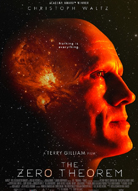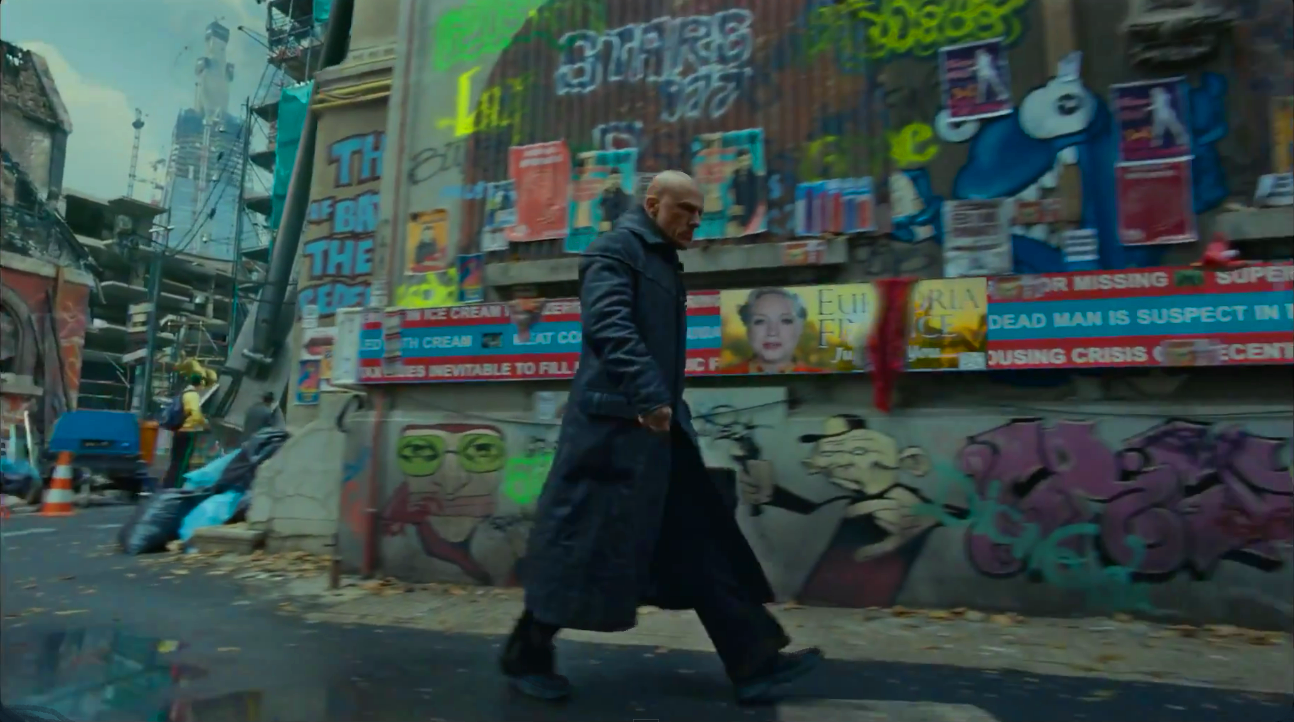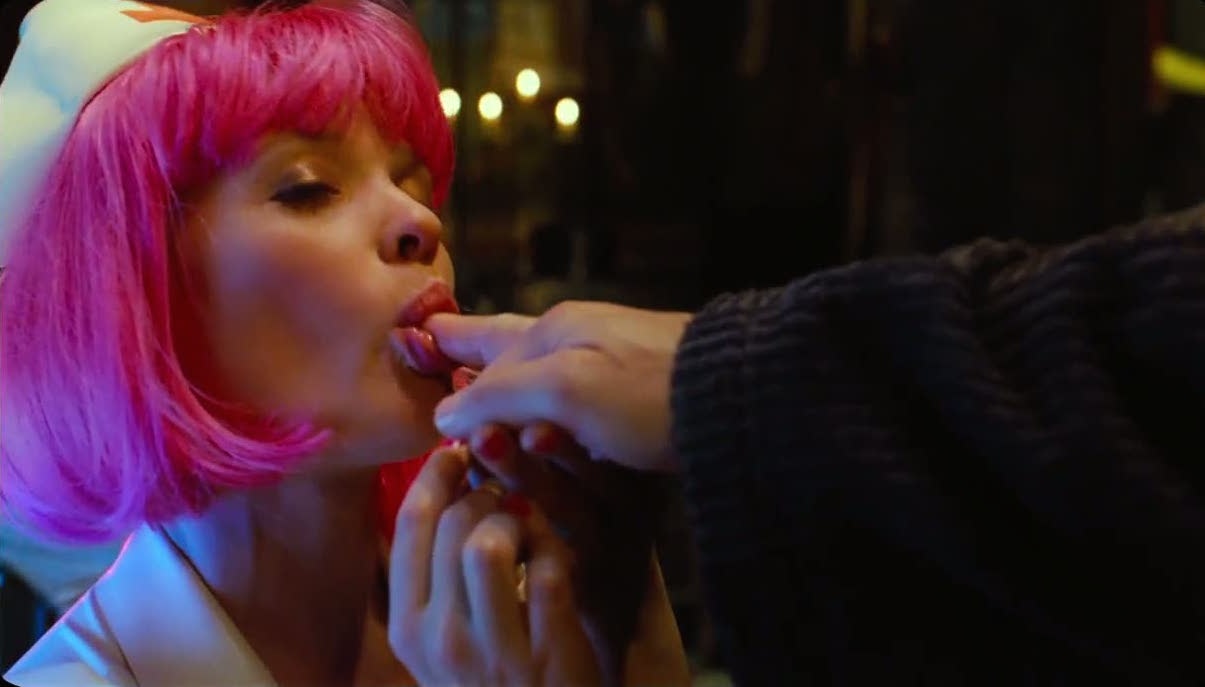Michael Cusumano here with the latest dispatch from the bizarre world of Terry Gilliam.
 Terry Gilliam is an artist one can’t help but root for. The image of Gilliam that comes most readily to mind is one from the great behind-the-scenes disaster documentary Lost in La Mancha. It’s early, before his production has imploded, and the director reviews one of the few shots he managed to get on film for his doomed Don Quixote project. The image of the three men cast as giants lumbering toward the camera delights Gilliam to no end. His childlike glee at the sight of their rolls of fat jiggling in grotesque slow-mo is an image of an artist in touch with the pure, silly thrill of filmmaking. A man who lives for the experience of seeing his cracked visions transferred to the big screen.
Terry Gilliam is an artist one can’t help but root for. The image of Gilliam that comes most readily to mind is one from the great behind-the-scenes disaster documentary Lost in La Mancha. It’s early, before his production has imploded, and the director reviews one of the few shots he managed to get on film for his doomed Don Quixote project. The image of the three men cast as giants lumbering toward the camera delights Gilliam to no end. His childlike glee at the sight of their rolls of fat jiggling in grotesque slow-mo is an image of an artist in touch with the pure, silly thrill of filmmaking. A man who lives for the experience of seeing his cracked visions transferred to the big screen.
On the other hand, the subtler, less flattering image of Gilliam I took from that documentary is that of a filmmaker capable of being swept up in the joy of the process to the point of being blithely indifferent to the needs of the audience. I remember leaving La Mancha with the guilty suspicion that maybe it was for the best that The Man Who Killed Don Quixote crashed and burned on take off. Better to live with the unrealized ideal than to see one’s dream project fail to live up to expectations. What little footage we see in the film suggests it would have been of a piece with his 21st Century output, which is to say fanciful bordering on incoherent, fascinating to look at but too messy to inspire emotionally investment.

Now Gilliam has given us The Zero Theorem, which is another in a succession of films that suggest my fears about Don Quixote were well founded. Zero Theorem is a film bursting with creativity but it’s all sprawling and shallow, as if Gilliam loaded all his ideas into a truck, backed it up to the screen, and dumped them out for the audience to sift through in search of any interesting bits.
And you know what? There’s value in that. Gilliam-land is always a cool place to visit. But in appreciating what there is to appreciate one is always keenly aware of the great film that might have been had some discipline been brought to bear on the delirious proceedings.
On top of this, hardcore Gilliam fans – and really, who else are these movies for at this point – are going to have a difficult time avoiding unfavorable comparisons to Brazil when presented with Zero Theorem's Qohen Leth, a persecuted, anti-social corporate drone in a garishly ugly, futuristic dystopia. When Qohen (played by a fiercely committed Christoph Waltz) is assigned the project of solving a mysterious equation capable of proving once and for all the meaningless of life, it’s a challenge not to feel that we are looking at the spare parts of Gilliam’s more fully realized past projects. Even Gilliam’s vision of what constitutes a futuristic corporate hell doesn’t seem to have been much updated since the mid-80’s – lots of joysticks and virtual reality cubes being shifted about.

Which, honestly, all could have been fine. Offering repeated variations on the same idea is practically a requirement to be classified as a serious auteur. But what’s shocking is just how under-developed everything is here. Little in Zero Theorem is not exactly how it appears at first glance. A menacing corporate overlord (played in a cameo by a white-haired Matt Damon) remains exactly the same ominous figure from one end of the film to the other. There is certainly nothing surprising about the sex worker (Mélanie Thierry) hired to help Qohen relax and focus. He falls for her just as you suspect he will, and Thierry has little to play beyond a variation on the whore with the heart of gold we’ve all seen too many times to count. We wait in vain for unexpected dimensions to reveal themselves, but everything stays put on the surface.
The prevailing feeling I had at the end of Zero Theorem was one of resentment at being forced into this relationship with Gilliam’s films. When an artist struggles and fights to get his personal vision to the screen I want to be the guy at the finish line cheering and trumpeting his success. But I can’t pretend I don’t see the sloppiness on display. Like The Imaginarium of Dr. Parnassus, which started with a duel between Satan and the Doctor before losing the thread on its many flights of fancy, The Zero Theorem is too busy getting high on its own imagination to follow through on its premise. Only the stray awe-inspiring image is on hand to remind us of the power of which Gilliam is capable.
Gilliam has become the poster boy for artistic independence but I’m starting to wonder if the restraints of mainstream commercial filmmaking might do him some good, perhaps reining in some of his worst excesses. For now, I will keep watching Gilliam’s films, pulling for his success, but resigned to the likelihood of more of the same. As for Lost in La Mancha I don’t dare risk another viewing for fear that that this time through I will sympathize more with the investors than with Gilliam.

Grade: C- The Zero Theorem is currently streaming. It will be released theatrically on September 19th.